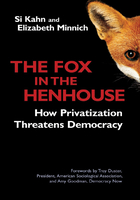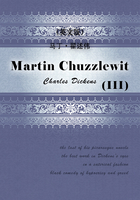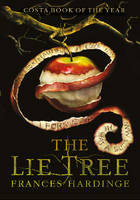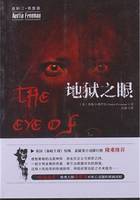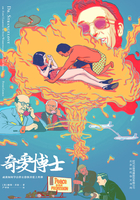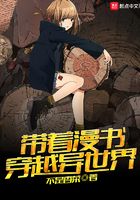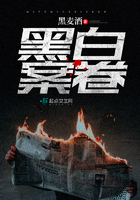First CIA Tour, Manila Station
"Manila is the cradle, the graveyard, the memory. The Mecca, the Cathedral, the bordello. The shopping mall, the urinal, the discotheque."
-Miguel Syjuco, Ilustrado
Manila, Republic of the Philippines, 1982
The U.S. Embassy compound sits on Manila Bay, a complex of sun-scrubbed buildings overlooking a wide promenade lined with coconut palms along Roxas Boulevard. Just up the harbor sits the Manila Yacht Club, and next door is a busy shipping terminal that sends massive vessels churning toward the tadpole-shaped island of Corregidor and the wide-open waters of the South China Sea. To the north of the embassy, a colorful patchwork of buildings rises from both sides of the Pasig River, a sluggish tidal estuary that bisects the city and runs in opposite directions on the whims and seasonal water levels of nearby Laguna de Bay. Everywhere, knots of mosquitoes hunt for blood.
The embassy compound's chancery, which sat a block from Manila's largest red-light district, Ermita, had served as a jail after World War II, its basement a makeshift court to try Japanese war criminals. Jim's desk, little more than a prop, now occupied an office upstairs. There the first-tour spy posed as a diplomatic officer in the mornings and slipped out in the afternoons. He filed reports behind a heavy wooden door marked "Office of Regional Affairs," a well-known euphemism for CIA stations around the globe.
Manila was a playground for a young CIA man in those days. The operations officers in Jim's station enjoyed a decent relationship with the host government of Ferdinand Marcos Sr., and seldom worried about being revealed, caught, or arrested for their espionage. They also didn't fear Filipino counterintelligence officers, who were too clumsy and overmatched by their CIA counterparts. The spies in Jim's wing focused their intelligence gathering on the KGB and its cohorts from Cuba, China, and Vietnam.
Marcos ran one of the world's most corrupt governments, famously telling ABC News, "I have committed many sins in my life. But stealing money from the government, from the people, is not one of them." Of course, Marcos and his famously shoe-hoarding wife Imelda were busily siphoning billions of dollars from public programs at the time, parking much of it in North American banks. Marcos so detested communist groups working to overthrow him that he fell into lockstep with the U.S. government and its efforts to thwart the spread of communism. Marcos had imposed martial law in 1972, closing the nation's congress and news outlets, and ordering the arrest of political foes. By the time Jim reached Manila, Marcos had presided over a decade of brutal human rights violations.
Jim was assigned to the CIA's internal branch, which spied on the emerging Communist Party of the Philippines and its armed splinter group, the New People's Army. The NPA, with assassination units scattered up and down the nation, was growing. Its gun-toting killers served as shakedown artists, extorting money from local businesses and foreign-owned mining and logging companies in hopes of fomenting a communist revolution.
Marcos' principle antagonist, former Filipino politician Benigno "Ninoy" Aquino Jr., had aligned himself with the left in hopes of overthrowing the regime's ruthless government. Aquino, once expected to ascend to the presidency in 1973, was instead imprisoned. When he suffered a heart attack, the Marcos regime allowed him to fly to Dallas for bypass surgery. He remained there in exile as his people fell into years of withering poverty. In the summer of 1983, Aquino flew home to the Philippines to confront the sagging political climate and talk to Marcos about a peaceful restoration of democracy. Aquino told journalists he was returning of his own free will, and was prepared for the worst. "A death sentence awaits me," he prophesied in an undelivered speech. And he was right.
The assassination of Aquino triggered angry protests across Manila, and many Filipinos believed Marcos had ordered the slaying. The Communist Party's labor and women's movements organized massive demonstrations outside the U.S. Embassy and other spots across the city, calling for the end of the U.S.-backed Marcos government and carrying posters emblazoned with the hammer and sickle. Jim and other officers dressed down in casual clothes and launched themselves into the daylight demonstrations. Jim posed as an American sympathetic to their cause.
Jim and a fellow case officer, one of his closest friends, often paired up to wade into the raucous crowds. Their job was to observe and report on conditions. Armed gunmen halted them from time to time for questioning. "We always did talk our way past them," Jim's former partner told me. "A former supervisor began calling us 'Batman and Robin' after one of these episodes."
Jim ate up his superiors' bon mots, delighted to be thought of as the station's caped crusader. He worked doggedly to develop assets who could provide him entree to key figures in the communist insurgency and the NPA, according to Norb Garrett, who served as the CIA's station chief in Manila from 1984 to 1988.
"He had the reputation of being kind of an up-and-comer," Garrett said. "A bright kid. Hard worker."
Jim worked like a journalist trying to learn what the protesters might do next, gathering intelligence and filing real-time reports. Embassy officials had a stake in the doings on the street. They feared demonstrators might breach the gates of their compound like the student protesters who overtook the U.S. Embassy in Tehran in 1979, holding fifty-two hostages for more than four hundred days.
Jim's workdays didn't end on the streets. He and other ambitious CIA officers rounded out their days in bars and other nightspots, cultivating new contacts and working old sources as they mixed business with beer and other pleasures. One of Jim's brother officers in the internal branch remembered beaching up with Jim and other colleagues at the Hobbit House. The popular bar, opened by a fan of J. R. R. Tolkien, was staffed almost entirely with dwarfs and other little people. It was a popular spot for Americans, especially young, good-looking, ambitious CIA officers trolling for intel to get ahead in the agency while drinking San Miguel.
But the extracurricular nights out played hell on marriages, including Jim's.
Laura Sue Cooper hadn't seen him coming that day in early 1973.
She was eighteen years old, a freshman at Oregon State University, weighing in before fencing class. She stood on the gymnasium scale after a short workout on the universal weight set. Jim sidled up, noting that the scale read ninety-three pounds.
"Getting a little heavy," he remarked.
Miss Cooper responded by slugging Jim in the arm. Love at first swing.
She stood five feet tall, a fair-skinned hazel-eyed blonde with a sprinkle of light freckles. She was born in the seaside dairy country of Tillamook, Oregon, but raised mostly in Eugene, home of the University of Oregon Ducks.
It was a little before Valentine's Day when Jim called. Laurie had no idea how he got her number. She learned he was a twenty-two-year-old senior on a four-year ROTC scholarship. She was curious enough to say yes to a date. What she didn't learn until later was that Jim had made a bet with a roommate that he could get her to go out with him.
Laurie, who had never been outside the U.S., was smitten from the start. Jim stood a foot taller than she, dark-haired and handsome. He had traveled the world, growing up on Air Force bases as far away as Japan. Jim was as charming and gregarious as Laurie was shy and circumspect.
He proposed less than a week later.
That spring, Jim graduated third in his ROTC class at Oregon State, fulfilling a lifelong dream to earn his commission as a second lieutenant in the Army. He had shaped himself into a low-keyed leader, commanding a unit called the Raiders. His four-year ride in the Reserve Officers' Training Corps coincided with some of the bloodiest fighting of the Vietnam War.
Combat troops had pulled out of South Vietnam three months earlier, returning to a largely ungrateful nation. Meanwhile, Washington and Moscow had closed out the first quarter-century of a nuclear and geopolitical standoff that posed grave consequences for the planet. Amid this chaos, Jim charted his future.
He married Laurie on June 10, 1973, in Eugene. Laurie wore a white floor-length wedding dress with a cathedral veil made of tulle. Jim wore his Army dress uniform with a bow tie. The newlyweds walked under an arch of dress swords. But the wedding marked only the beginning of Jim's dead run into adulthood. He had already taken Army Ranger training in the ROTC and, with no war left to fight, he would plunge himself into military intelligence to help defeat communism.
Jim was a child of the Cold War. He was born in Woodburn, Oregon, on November 17, 1950, the day after President Harry S. Truman declared an emergency crisis caused by the threat of communism. Jim's mother, Beatrice Marie "Betty" Adamson, had married Jim's father, Harold James Mesick Jr., in 1949, while she worked as an Army cryptographer. But Betty's marriage to Mesick, an Air Force sergeant, never took. Mesick showed little love for her and never bonded with Jim. He was sent to Okinawa, Japan, to serve as a gunner on combat missions in the Korean War. When later he walked away from his family, Betty didn't object. She remained married to Mesick in name only until 1956, when they formally divorced. Betty got full custody of Jim, who hadn't laid eyes on his namesake since he was an infant.
Betty became a single working mom at a time when such circumstances surely fed the small town's scandal-hungry gossips. She opened Elite Beauty Salon and remodeled her life. Her parents looked after Jim while she worked. They were Presbyterians who had fled North Dakota in the early 1930s, victims of drought, swarms of crop-killing grasshoppers, and black blizzards of dust that finished off what the Wall Street Crash of 1929 had commenced.
After Betty had been juggling work and motherhood for a year, her sister introduced her to an airman living at an air base in Klamath Falls, Oregon. Marvin "Nick" Nicholson was nearly five years younger and a few inches shorter than Betty. They fell in love during a historic autumn in American history. John Wayne and Sophia Loren lit up movie screens in Legend of the Lost, Elvis Presley's song "Jailhouse Rock" hit number one on radio charts, and Cold War tensions between the U.S. and U.S.S.R. literally soared when the Soviets launched the world's first artificial satellite. The technology that powered a twenty-three-inch sphere called Sputnik 1 into outer space was also capable of delivering a nuclear warhead to the continental U.S.
Jim served as ring bearer at his mother's wedding on March 22, 1958, in the Presbyterian Church in Woodburn. Betty sold her beauty shop and they moved to Klamath Falls, where she enrolled Jim in second grade. Jim balked when he learned the school roster listed him as Harold James Mesick. He thought he'd already become a Nicholson. "Mom," she recalls him complaining, "we got married." Nick put the matter to rest by formally adopting Jim. The couple would eventually give Jim siblings, sister Tammie and brother Robert.
Air Force bases and other military installations would serve as Jim's backyard playgrounds for the next dozen years. He made the awkward turn into his teens at Edwards Air Force Base on the western edge of California's Mojave Desert. In January 1965, Jim met Len Beystrum in an eighth-grade history class, and the two would become lifelong friends. They were inseparable for about three years at Edwards, hiking into the desert to dig forts, riding bikes, swimming in the base pool, and playing board games. Jim later played football with the Desert High Scorpions. Like most of the Edwards kids, he was steeped in patriotism. He stood at attention when the base intercom played "Taps" each evening.
It was a scary time for Americans. Cities handed out nuclear evacuation pamphlets, homeowners built bomb shelters, and schoolkids were forced into duck-and-cover drills as alarms blared. But parents at Edwards had little truck in fear. Nick Nicholson and other airmen were already doing their part to ensure the U.S. stayed on top of the Soviet Union. Nick spent his days as an aircraft technician maintaining the Air Force's SR-71 Blackbird spy planes, which hurtled at supersonic speeds to collect intelligence on communist adversaries.
It was likely that Nick's work and Betty's talk of code breaking ignited Jim's passion for spying. While other boys stuck their noses in Mad magazine, Jim pored through library books on intelligence operations. He idolized James Bond, played on the big screen by Sean Connery. The early 007 dressed sharp, piloted an Aston Martin with twin machine guns, and burned women down with charm and dry martinis. Spies were the new heroes of Cold War culture in America. Napoleon Solo in The Man From U.N.C.L.E., Kelly Robinson in I Spy, and Maxwell Smart in the spy-spoofing Get Smart thwarted countless communist villains.
The notion of spying for one's country as an act of patriotism took such deep root in Jim that by the time he and his young bride set off to chase his military intelligence career, he was already dreaming of missions in foreign ports of call. Laurie, who had just completed her first year at Oregon State, quit school to help Jim follow his ambitions. They spent the first few years of their marriage at Army bases in Georgia and Kentucky, humid hellholes where Jim took airborne training and Laurie got up every morning to make sure the seams of his shirt, belt buckle, and trousers were aligned. Jim's big move came in 1975, when he was shipped off to Fort Devens, in Ayer, Massachusetts, where he studied cryptology, the art of code breaking. Jim's superiors, clearly impressed with the young officer, later assigned him to the Army Security Agency field station in Okinawa, Japan.
Jim knew Okinawa well. He and his mother had moved there temporarily in September 1959 to join Nick, who was stationed in Sobe, at the edge of the East China Sea. The Nicholsons took residence in an un-air-conditioned concrete-block house with grass rugs, bamboo furniture, and mosquito netting. Jim slept on an Army cot, his life a perpetual camping trip. He and his chums spent their days exploring the island, a wild, tropical place crawling with venom-packed snakes and spiders as big as your fist. Ghosts of World War II haunted the place, where U.S. Marines fought for eighty-two days to establish military bases. Jim and his buddies ran across live ordnance, and once, while exploring a cave, stumbled over a skeleton with a rifle and helmet.
Jim's adult years on Okinawa were a steady climb in his intelligence career. The Army Security Agency was responsible for securing military communications and running electronic countermeasures. Jim advanced to first lieutenant, then captain, and won commendations. He also attended school at night, earning a master's degree in counseling from the University of Maryland's University College program in Asia. He later volunteered as a counselor for military personnel and their families.
Laurie resented Jim's focus on his career, which turned her into an officer's wife. She was tired of attending military parties, where she felt ignored. Tired of turning down job offers to chase Jim's career. Tired of serving as Jim's chef, housekeeper, and doormat. It galled her that he had earned his master's before she'd gotten a bachelor's. She took classes in Japanese, sociology, and oceanography. But when she asked Jim if she could return to college full time, he told her that was just an excuse to divorce him.
Jim and Laurie also began to suspect each other of cheating. Jim thought she was sleeping around on him, and she was convinced he had bedded an enlisted woman. Before things could spin out of control, Jim's tour of duty on Okinawa came to a close. The Army relocated him to Fort Huachuca, Arizona, home to the U.S. Army Intelligence Center and Strategic Communications Command, a good post for an up-and-coming intelligence officer. It was there, in the middle of 1978, that Laurie gave birth to their first child, Jeremiah, whom they named after the biblical prophet. Laurie picked their son's middle name, Dei, the Latin word for God. They called him Jeremi.
The Army presented Jim an array of intelligence-gathering disciplines, from satellite surveillance to human-to-human spying, known as HUMINT. Laurie recalled years later that Jim had no interest in the field of human intelligence, which is where his talents lay.
The peacetime Army and its lousy pay left Jim at a crossroads. During his next posting, at Fort Ord, near Monterey Bay, California, he made a bold move to leave the only career he knew. He plunked down $500 for some proper business plumage, choosing a three-piece pinstripe suit tailored with medium-weight wool. Laurie sent him off to a job fair looking deadly handsome. Jim mailed résumés to potential employers, including Alcoa, Frito-Lay, and the CIA, and left the Army on August 13, 1979.
Jim thrilled at the notion the CIA might call him for an interview. But he leaped at his first job offer, uprooting Laurie and Jeremi and moving them to a rental home outside Kansas City, Missouri. Jim went to work making decorative candles and votives for Hallmark Cards. Laurie recalled that Hallmark, impressed with Jim's work, wanted to send him to Hong Kong as a production manager for its injection-mold operation. But the Nicholsons stayed put as Jim prayed the CIA would call. They bought a house in Lee's Summit, Missouri, where Jim joined the Church of Jesus Christ of Latter-day Saints and grew a beard. When Jim told his parents he'd become a Mormon, his mom, who raised him Presbyterian, wasn't pleased.
"It's up to you," said Betty. "But you'll never convince me I'm a second-class citizen."
"We don't believe that," Jim told her.
Betty didn't buy it, but she let it rest.
Jim's CIA application stalled, although he was precisely what the agency wanted. He was smart, charming, and possessed a good mix of creative problem-solving skills and executive functioning; his military intelligence background was a bonus. He read up on world affairs, Laurie recalled, and practiced naming the world's top political leaders. But Jim was the victim of poor timing.
The CIA had spent the last few years curbing clandestine operations and drawing down its roster of on-the-ground spies. Stansfield Turner, the CIA's director, believed that the future of global intelligence gathering was in electronic surveillance. "We only need spies," Turner famously observed, "where satellites can't go." Turner slashed more than eight hundred jobs from the payroll, a two-year bloodletting commenced in the autumn of 1979 that came to be known as the Halloween Massacre. His Cold War strategy was to expand the machinery of intelligence gathering, especially signals intelligence, to identify nuclear missile silos and intercept radio transmissions behind the Iron Curtain. But the Soviets' war in Afghanistan and their backing of communists in Nicaragua soon changed Turner's thinking.
In the waning months of Jimmy Carter's presidency in 1980, the CIA commenced a hiring blitz to cover its Cold War action in the Middle East and Central America. The agency funded Afghanistan's Islamic mujahideen in their war against the Soviet Union, and they provided support to Nic-araguan rebels in their efforts to overthrow the Soviet-backed Sandinista government in Managua. In early 1980, the CIA flew Jim and many other prospective operations officers eastward for interviews.
Laurie picked Jim up at the Kansas City Airport when he returned from his interview. They made small talk on the way home in their Jeep CJ-7 Renegade. Inside the little orange car, Jim would not talk about how things went. Only at the house, behind closed doors, did Jim confide that he'd accepted a job with the CIA. Laurie recalled that he was practically bouncing off the walls, a life's dream come true. Jim explained that she could be a stay-at-home mom or join him, under contract, to support his spy work as part of a husband-wife team. But with a baby in the house, Laurie didn't feel comfortable taking a part-time job with the agency. She would consider it later.
The Nicholsons packed Jeremi and the family's Australian shepherd, Morning Dew, into the Jeep and drove to northern Virginia, eventually settling into a drafty frame rental house in Alexandria. Jim entered duty with the CIA on October 20, 1980. Fifteen days later, voters sent Ronald Reagan to the White House-good news for Jim's new employer. The Reagan administration reinvigorated the CIA with enough funding to combat the Soviets at every front in the global spy war. The agency dispatched Jim and hundreds of other men and women to The Farm, 150 miles south of their home, for basic training as spies.
Laurie discovered the loneliness of the long-distance CIA relationship during Jim's ten months at The Farm. As Jim learned how to make disguises, detect surveillance, and recruit foreign assets, Laurie learned how to keep house with a potty-training toddler. As Jim took the agency's paramilitary course, parachuting out of planes, firing machine guns, and rigging handmade explosives, Laurie scrubbed toilets and paid the bills. When her husband came home for short weekends, he couldn't talk about his training. Jim was obsessively secretive about his work, maintaining his cover as a Department of State diplomat even with his parents. Laurie wearied of the separations, and she sometimes felt like a single mom. The Nicholsons spent enough time together to conceive Star, born in October 1981. But in time, Jim's constant travel and the secrecy of his work would grind them toward a showdown.
When Jim's training at The Farm concluded, the agency sent him home to Alexandria, where he commuted to a language class nearby. He spent his days with several other men in a high-rise in Rosslyn, Virginia, studying Tagalog, the primary language of the Philippines. Jim's classmates were newly minted diplomats with the U.S. Foreign Service, and it was obvious the government planned to post them in Manila for their first tours abroad. The students drew close, eating together and sharing life stories. But they noticed that Jim grew uncharacteristically quiet when they'd discuss the State Department's grueling A-100 class, which taught the building blocks of diplomacy. When someone finally asked Jim which class he'd taken, he told them he was in a special program that allowed him to bypass the course and go straight into the political end of the Foreign Service.
Classmate Tom Reich had never heard of such a thing. Curious, he and another student later checked with someone in the State Department personnel office, who thumbed through a roster of junior officers, found no one by Jim's name, and declared, "You've got a spook in your class." Jim's concealment didn't sit well with Reich. Foreign Service employees were supposed to help CIA officers maintain their cover, and Reich found Jim's lie off-putting. He knew there was no reason for Jim to keep up the unnecessary charade. It was as if he enjoyed the lie.
On the last Tuesday in January 1982, Jim took the oath of office, promising to defend the Constitution against all enemies, foreign and domestic. He also signed papers acknowledging that he held top-secret security clearance and that disclosing U.S. secrets was a crime that could gravely damage his nation.
Early that March, as the six-month Tagalog course wound down, Jim invited his classmates and teachers to the two-story rental in Alexandria. Reich watched the dynamic between Laurie and Jim. Laurie was cute and meek as a mouse, and she appeared to live under Jim's thumb. Jim held court with his guests throughout the evening. Whenever he asked if anyone needed fresh beverages, it was Laurie who jumped up to fetch them. Jim never lifted a finger. Laurie might as well have been the maid.
Jim did not explain to Laurie how he spent his days and many evenings in Manila. He typically got home after she had read the kids to sleep. Laurie, pregnant with their third, was mostly homebound. Sometimes Jim took Laurie to embassy parties, some of them mandatory. They often found themselves at swanky residential homes in one of Manila's sixteen cities, Makati, where the men dressed in Barong Tagalogs and sipped tropical cocktails. From time to time, Laurie recalled, they ended up at suit-and-tie affairs where Jim-keeping to his cover as a political officer-made friends with Soviets he considered "developmentals."
From time to time, Jim brought potential assets home, phoning Laurie on short notice to say he had extended a dinner invitation. He had told her that recruitment of a KGB officer was rewarded with a full bump in pay grade. She worked hard to make their guests feel at home, rustling up food and cocktails, which were reimbursed by the CIA. One of the couples had children roughly the same age as Jeremi and Star, and Laurie figured the husband was KGB. Jim and the Soviet got along famously and became good friends.
This cat-and-mouse action played out daily in cities across the globe, one spy working to recruit another spy-or a government official, a business maven, or someone inside the corridors of power and influence. They tried to learn their targets' vulnerabilities-alcoholism, for instance, or marital infidelities, money problems, gambling addictions, hidden homosexuality, or drifting ideologies. They worked months, sometimes years, to craft a recruitment pitch. Sometimes they resorted to blackmail.
Once at an outdoor party, Laurie recalled, a Soviet man drew her aside for a pitch of his own. Russian men were famous for their flirtations. But this man's wife was nearby, visibly pregnant, and he'd clearly been drinking. Soon he made a graceless offer to take her for a ride in his car, just the two of them. Laurie berated him for his boorish move. While he might have been a KGB officer sidling up to Laurie to learn more about Jim, she took it as an unwanted romantic advance and told him, as nicely as she could, to go fuck himself. "I probably blew it for Jim," she said.
Though Jim spent night after night away from her and the kids in hopes of finding a source capable of penetrating the KGB, Garrett didn't recall his developing any sensational assets during his years in Manila, and he was certain that Jim brought no spies-those from the Soviet Union or other communist countries-into the CIA's fold. Although it wasn't for lack of trying: Jim's reputation in Manila was that he was out on the town, but not stepping out on his wife. The city was full of sultry, flirtatious women hunting for husbands. Many of the men they pursued turned philandering into an art form, and Garrett remembered nearly sending one of Jim's brother officers home-meaning back to the U.S.-for bringing unauthorized women into the CIA station. The agency's spies were supposed to report their relationships with foreign nationals, even those in which all that passed between them were bodily fluids.
Laurie took an entirely different view of Jim's nights on the town. Late in his Manila tour, she recalled, their maid confessed to her that she and Jim were having an affair, and that she was pregnant. Laurie recalled that the Filipino housekeeper wanted her husband, her kids, and the family dog. Their maid wasn't the first to throw herself at Jim, but she was the first hell-bent on breaking up the marriage. Laurie confronted Jim, and he quickly summoned the housekeeper for an intense conversation in Tagalog. Jim neither confirmed nor denied the affair to his wife. Many years later, he would deny ever cheating on her. But rumors about Jim's affair with the housekeeper passed through the CIA station, according to one fellow officer.
On the last day of July 1984, Laurie gave birth to Nathan in a hospital in Makati. The Nicholsons named him Nathaniel after the Old Testament prophet. It would have been easy at that point for Jim, with three kids in the house, to put his ambitions on the shelf and coast. But it might have been career suicide.
The following year, the CIA posted Jim to Bangkok, Thailand, to take part in a covert program in support of the Cambodian resistance movement against communist Vietnam. The Vietnamese, backed by the Soviet Union, had seized Phnom Penh in the late 1970s and were at war with Cambodia. The bulk of Cambodia's opposition movement-supported by the U.S.-had fled to the jungles of its western border with Thailand. The CIA needed bodies on the ground.
Jim was thirty-four years old. He had sat out the Vietnam War in classrooms back in Oregon. Now came his chance to run paramilitary operations against the occupiers. Garrett, who supervised Jim in Manila, said the new assignment played to Jim's strengths as a soldier. He recalled that his young subordinate was excited about running cross-border ops in a hot zone with a Kalashnikov rifle slung over his shoulder.
Part of the CIA's mission was to ensure that Cambodians fleeing the bloodshed safely reached international refugee camps in Thailand. In a tricky arrangement, the U.S. supported the coalition forces of exiled leader Norodom Sihanouk and the anticommunist Khmer People's National Liberation Front. The third leg of the coalition at odds with the communists was the Khmer Rouge, a guerrilla force led by Pol Pot, who had superintended genocide in Cambodia in the 1970s. Many of the Cambodian refugees spilling into Thailand wanted food, asylum, and one-way tickets to the West. The CIA sent Jim and his colleagues to the border to train Sihanouk's soldiers and make sure they reached safety.
Jim shared no details of his new assignment with Laurie. He moved his wife and three kids into a house near the U.S. Embassy compound in Bangkok, hired a maid and a cook for them, and vanished. He took up residence in a CIA house in Aranyaprathet, Thailand, a border town more than 130 miles east of his family, where he spent much of the next three years. Jim was supposed to come home to Bangkok four days out of each fortnight, but his stretches on the border grew longer. At one point, he didn't come home for months, leaving the kids heartbroken.
The separation effectively turned Laurie into a single mom. She spent exhausting days making sure Jeremi caught his bus to and from the American School, packing Star off to preschool, and taking care of Nathan, still in diapers, as she took a weekday gemology class in downtown Bangkok. Nathan grew into toddlerhood scarcely knowing his dad. He was a terror: rebellious, tempestuous, the family daredevil. He seemed to find the highest spots in the house, often beds, then jump up and down until he fell. He was an unrepentant show-off who wore skinned knees like service medals. Nathan was, in almost every way, Jim's mirror image.
Meanwhile, Jim lost himself at work on the border, gathering intelligence alongside a young Thai interpreter, Kanokwan Lehliem, whom Jim would later credit with saving his life on a few occasions as they moved between troops and gunfire. Eventually they fell in love.
Laurie and the kids paid a visit to Jim in Aranyaprathet one weekend, their driver carrying them past Buddhist shrines and green fields bleached by sunlight. When they reached Jim's government house, Jeremi, who was just nine or ten, took one look at the place and thought it didn't look like a man's dwelling. The house was spotless, and it was abundantly clear to Jeremi and his mom that someone else was living with Jim.
"There was a female in there, you could tell," Laurie recalled in an interview years later. Yet there was no sign of a maid-not so much as a toothbrush. It was clear that whoever lived there had cleared out. Laurie couldn't confront Jim with her suspicions in front of the kids. So she let it go. But the visit told her everything she needed to know. "He had his mistress there," she said. "He had a house there. Why would he want me and three kids?" Laurie was torn apart by the latest of what she was starting to see as Jim's serial infidelities. Still she wouldn't leave him, clinging to the hope that Jim would overcome the demands of his job to make the most of their marriage.
When Jim's tour ended in 1987, the CIA shuttled Jim and his family off to Tokyo for a two-year hitch marred by the ambassador's disdain for the agency. The CIA rotated Jim stateside in 1989. The Nicholsons bought a town house in Burke, Virginia, eighteen miles from agency headquarters.
The CIA promoted Jim to chief of its station in Bucharest, where he would run intelligence operations against the communist bloc. This was a declared position, meaning Romanian officials would learn that he was the agency's top spy in their country.
Laurie didn't want Jeremi to learn from outsiders that his dad was a CIA officer. So she sat down with her oldest, now twelve, asking him what he thought his dad did for a living. When Jeremi said his dad worked in government, Laurie helped guide him through a series of questions that steered him to Jim's specific job. She swore Jeremi to secrecy and explained that Star and Nathan were too young to know.
The Nicholson children had reached an age where Laurie felt comfortable taking a part-time job with the CIA to help serve her country and support Jim's operations in Romania. She took some classes in the D.C. area-a couple of weeks of radio training and a course on how to identify surveillance-before they flew overseas.
Bucharest, Romania, 1990
The big house in Bucharest seemed like a palace to Nathan, who turned six that summer. The first-floor living space was cavernous, with stone floors, tall pillars, a fireplace, a servants' staircase, and a large dining area with a built-in liquor cabinet. The table sat twelve. The basement had a wine cellar and cloakroom, with an overflow passage that held two refrigerators, where Jim-a fiend for chocolate-squirreled away Reese's Peanut Butter Cups. Star took a small room with a domed ceiling. Nathan took a large room with Jeremi on the second floor, which had its own balcony. But he lived in the downstairs TV room playing Super Mario Brothers 3 on the game console.
The house served as a party palace for the Nicholson kids and their classmates at the American School. Friends popped in for raucous games of hide-and-seek, making use of a massive attic where maids had once slept during the curfews imposed by malevolent communist leader Nicolae Ceau?escu. The Nicholsons threw an annual Halloween bash for kids in what Nathan recalled as their especially creepy basement.
Jim's posting in Romania put him nine hundred miles from Moscow, a choice spot to run operations against his nation's primary communist targets. But once again, Jim's timing was poor. Anticommunism had already swept Europe, taking down regimes in Czechoslovakia and Poland. In East Germany, the Berlin Wall fell in November 1989. A month later, Ceau?escu's rule over one of the most repressive nations in the Soviet bloc came to a dramatic close. He had made the mistake of ordering his KGB-like intelligence service, the Securitate, to open fire on antigovernment demonstrators. Ceau?escu's own military hunted him down with his wife, Elena, capturing them on Christmas Day 1989, hastily trying them for genocide and public corruption, and summoning a firing squad. Hundreds of soldiers reportedly offered to deliver the fatal bullets.
Jim was just thirty-nine years old, and his star shone brightly at Langley. He was practically a shoo-in to one day join the agency's Senior Intelligence Service, the CIA's top echelon. But he had a devil of a time in Bucharest, where his position was known to Romania's intelligence service.
Communism had fallen with Ceau?escu. But much of the Securitate's rank and file-a secret police force once estimated at eleven thousand agents and a half-million citizen informants-still kept tabs on foreigners. Jim was tailed in his maroon Volvo and sometimes needed Laurie to sneak him around, dropping him off and picking him up at prearranged spots. She and Jim took hikes on streets near the embassy looking for dead drops, the secret hiding spots that spies and their assets used to communicate and exchange money.
Laurie's primary job was to man a radio monitoring system inside the embassy. She worked in a drafty garret, headset muffs clamped over her ears, as she tried to detect surveillance devices planted in the building. She sweated through Romania's summers in her attic cubbyhole and wrapped herself in a blanket during its frozen winters, her antennas pointed down into the guts of the embassy to ensure that the offices of the CIA and the U.S. ambassador weren't bugged.
Laurie had hoped Jim's new position in Bucharest would put him on something approximating a nine-to-five schedule. But once again, she found that his career came first. He worked long hours at the office, slipped out in the evenings, and occasionally left town on business. Laurie was certain he was playing around on her. She recalled that just two months after their arrival, Jim told her, "No matter what anyone says, I did not have an affair." Laurie felt herself pulling away.
She struck up a friendship with a polite young veterinarian named Radu, who was smart and good-looking and who, like so many eastern European vets, made house calls. He stood a little over six feet tall, about a foot taller than Laurie. Radu looked after the Nicholsons' dog, Max, which was half wolf, and George, the stray orange-and-white cat that turned up on their doorstep. Radu treated George's mange, and Laurie helped Radu with his English, correcting his pronunciation and teaching him American slang.
Their friendship rattled Jim.
It was late one evening when seven-year-old Nathan found his dad at the top of the staircase listening to Laurie and the young vet. They were seated on a sofa in the living room below, having an animated conversation. Nathan could see his dad eavesdropping with a furrowed brow, and he was curious. Jim motioned him over with a forefinger.
"What's up, Dad?"
"That guy," Jim said with a nod to the doings below, "really makes me uncomfortable."
That was all Nathan needed to hear. Before his father could say another word, he trotted downstairs and announced to Radu that he had overstayed his welcome and that it was time to hit the road. Nathan stood defiantly, his mom looking bewildered as Radu pulled himself to his feet. The young vet smiled uncomfortably and excused himself for the night.
Not long after that, Jim confronted Laurie about the budding relationship. Their stories differ on what was said. Jim's version, as he told it to his parents, was that he chewed her out for growing close to the young Romanian, saying it was precisely the kind of relationship the CIA had warned them about-one where she might be blackmailed into disclosing classified information. Laurie's version is that Jim flat-out accused her of disclosing secrets to Radu, scolded her for being so stupid, and told her he'd been handed an inch-thick file on her misdeeds. It remains unclear what bothered Jim more-Laurie's crush on the vet or her uncomfortable ties with a man he feared was a foreign spy.
The Nicholsons' marital bed wasn't exactly on fire. Over the years, Laurie found Jim impatient in the sack, always wanting things his way. This was perhaps forgivable. But after all of his betrayals-his virtual abandonment of his family in Bangkok, his schtupping his way across much of southeastern Asia, at least in Laurie's mind-his accusation that she'd been unfaithful to her country was the straw that broke the marriage's back.
In a kind of cosmic reorganization, Jim and Laurie's union began to disintegrate just as one of the most feared superpowers in history imploded over the next border. On Christmas Day 1991, Mikhail Gorbachev resigned as president of the Union of Soviet Socialist Republics. Boris Yeltsin accepted the launch codes of the former empire's nuclear missiles and became president of what would be called the Russian Federation. After decades of cruel leadership, systemic corruption, and austerity, the U.S.S.R. was dead. An obscenely expensive war in Afghanistan, tipped in the mujahideen's favor by none other than the CIA, had helped to ruin the Soviet economy and end the Cold War.
Back at CIA headquarters, the Soviet/East European Division threw a party that spilled into the fourth-floor hallways of the Original Headquarters Building. Many of the revelers, intoxicated by the global paradigm shift and the free flow of booze, pinned buttons to their suits. The buttons were circular and white, and featured a red hammer and sickle with three words stamped prominently:
THE
PARTY'S
OVER!
Jim's attention in Bucharest stayed fixed on Moscow. He kept a laser focus on the foreign intelligence wing of the former KGB, now the Sluzhba Vneshney Razvedki. The Communist Party and the KGB were done. But its successors in foreign intelligence, the spies of the SVR, had merely tempered their hatred for the "Main Enemy," the KGB's nickname for the U.S. Now they called Americans their "Main Adversary." The boys and girls in the SVR, many of them former KGB officers, weren't holstering their Makarovs just yet. Their spying would now be a grudge rematch against the West, which had quietly knocked their dicks in the dirt. Jim saw Romania as a battleground in a new era in which the SVR and Romanian intelligence would surely pose a threat.
But Jim's take on things seemed paranoid and even delusional to John R. Davis Jr., who on March 11, 1992, became the new U.S. ambassador to Romania. Davis soon discovered that the CIA's chief of station was, in his words, a bit odd.
"For one thing," Davis recalled, "he was seeing Russians under every bed. It was very strange. He tried to persuade me that the Romanians were still working for the Russians and that they shouldn't be trusted under any circumstances. That they were up to no good in Romania."
Davis didn't see it that way. He had spent thirteen years--scattered over three decades-in Poland, where he witnessed firsthand the revolution that ended its piece of the Cold War. He believed that once the Soviets let go of the reins, the locals would scramble to ingratiate themselves with the West. It was something he'd seen all across eastern Europe. Davis was nearly certain that members of Romania's Securitate, to assure their own survival, would do the same. He and Jim argued this point a few times before they agreed to disagree.
Laurie continued to spend time with Radu, causing Jim personal and professional headaches. He probably felt that Radu posed a security threat-that he was a Romanian spy using Laurie to steal his office's secrets. But he turned his anger directly at Laurie. He flew into a rage in early 1992, telling her never to see the veterinarian again. Jim promised her that if she did, he would take her, sexually, any way he pleased.
The venomous attack came out of nowhere, Laurie recalled, leaving her confused and hurt. All that she and Radu had ever done was talk and maybe flirt a little. European men flirted perpetually. Jim's response to her befriending the handsome vet wasn't to lose his temper, to walk out on her, or to threaten to kill the bastard. He bullied the mother of his children into believing he would savage her if she disobeyed him, making Laurie feel like a whore.
Perhaps it was spite, but she waited until Jim left town on a trip to Moldova to invite Radu over to the house. It was nighttime, and the kids were asleep, when she took him to bed in the attic. She made love to Radu another day, when the kids were at school. Laurie later confessed the affair to Jim, who demanded to know all the details. She recalls telling him, "A hundred times in a hundred places," knowing it would piss him off.
Just before Easter 1992, she got tipsy drinking wine with one of the embassy wives, and shared a few details of the discord in her marriage. Eventually she lost her temper, slipped off her wedding and engagement rings, and pitched them across the kitchen floor.
In June, Laurie told Jim she wanted a divorce, and he said she could have it.
"Fine," she told him. "Get me on the first plane out of here."
Laurie recalls that Jim tried to dictate the terms, saying he would take the boys and she would take Star. But she wasn't budging. She and the kids flew to Virginia, where Jeremi celebrated his fourteenth birthday, then traveled to upstate Washington to live with her brother. Jim stayed behind in Bucharest.
They spoke about once a week, typically with Jim phoning to rant at her. She remembers speaking little, weeping much, and going numb during those chats. Later, she recalled, Jim confessed he was having a nervous breakdown. When the CIA reassigned Jim to Kuala Lumpur, he phoned her to demand that she and the kids move to Malaysia and join him, or that she finally divorce him.
On July 27, 1992, Laurie filed dissolution papers in Shelton, Washington. Jim flew to the Pacific Northwest later that summer, where Judge Toni A. Sheldon granted him temporary custody of the kids, partly because Jim had a good job and Laurie was unemployed. The judge ordered him to pay for Laurie's college education and send her $700 a month to get her back on her feet. In the interim, she would have the kids every summer and Christmas vacation, regular contact by letter and phone, and a say in their religious upbringing. It would take years for Jim and Laurie to reach a divorce settlement, an excruciating journey for the Nicholson clan.
When the summer of 1992 came to an end, Laurie, living in the Pacific Northwest, packed the kids up to go live with their dad in Malaysia, where Jim was now stationed. She returned to Oregon State University to pursue the dreams she had abandoned two decades before to help Jim chase his. She studied geology, walling herself off like a prisoner to rebuild her life brick by brick. After a full-time course load and laboratory sessions that stretched long into the night, she dragged herself home to her little apartment and crumpled into bed thirteen time zones from her kids. She woke many mornings with eyes cemented shut from tears. To survive, she recalled, "I had to seal off my heart."
Jim rarely put the kids on the phone. When she did reach them, she could hear the changes in their voices. She sensed them growing up without her, and it made her feel powerless. She longed to hug them, to smell their hair, see them smile. As often as possible, she placed overseas calls hoping that Jim wouldn't pick up. His voice only reminded her of that long, brutal chapter in her mortal education. She hated him, and in her weakest moments wished him dead. Jim had created malleable women-the meek Laura Sue Cooper he married, the compliant Laurie Nicholson who stayed. All she wanted was to become someone else, someone she could respect. In fact, when the divorce became final two years later, Laurie would legally change her name to Al'Aura Jusme. The new surname formally redefined her place in the world. Just me.
She blamed Jim for their miseries and sensed he was grooming the kids for a life apart from her. Laurie tried to convince herself that the children would see through his attempts to slowly turn them against her, and that they would be strong enough not to play along. But Jim was powerfully deceptive. He'd been professionally trained at duplicity and deceit. He was, in so many ways, precisely what the agency created.



